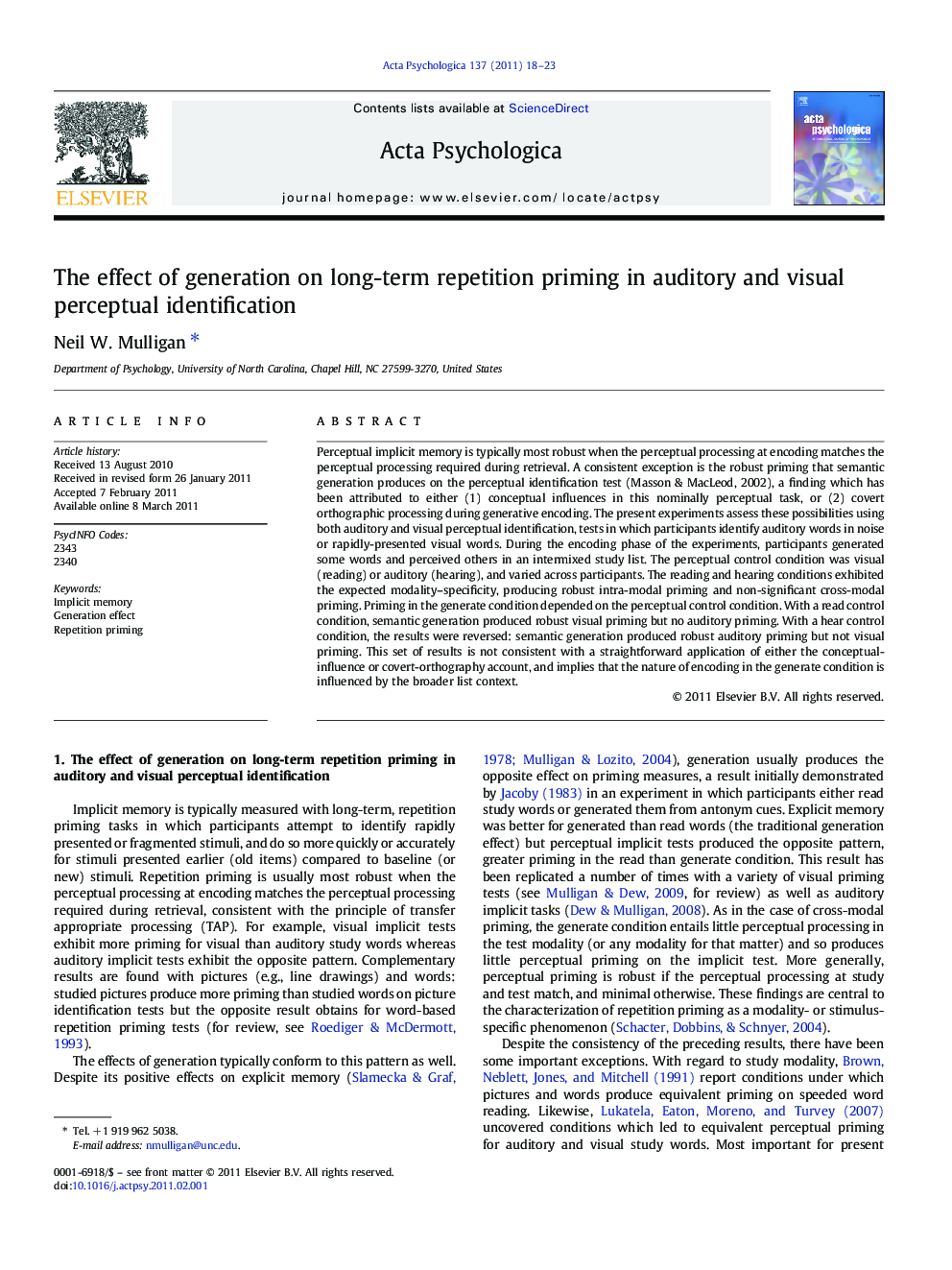| Article ID | Journal | Published Year | Pages | File Type |
|---|---|---|---|---|
| 920150 | Acta Psychologica | 2011 | 6 Pages |
Perceptual implicit memory is typically most robust when the perceptual processing at encoding matches the perceptual processing required during retrieval. A consistent exception is the robust priming that semantic generation produces on the perceptual identification test (Masson & MacLeod, 2002), a finding which has been attributed to either (1) conceptual influences in this nominally perceptual task, or (2) covert orthographic processing during generative encoding. The present experiments assess these possibilities using both auditory and visual perceptual identification, tests in which participants identify auditory words in noise or rapidly-presented visual words. During the encoding phase of the experiments, participants generated some words and perceived others in an intermixed study list. The perceptual control condition was visual (reading) or auditory (hearing), and varied across participants. The reading and hearing conditions exhibited the expected modality–specificity, producing robust intra-modal priming and non-significant cross-modal priming. Priming in the generate condition depended on the perceptual control condition. With a read control condition, semantic generation produced robust visual priming but no auditory priming. With a hear control condition, the results were reversed: semantic generation produced robust auditory priming but not visual priming. This set of results is not consistent with a straightforward application of either the conceptual-influence or covert-orthography account, and implies that the nature of encoding in the generate condition is influenced by the broader list context.
Research highlights► Examined the effects of generation on auditory and visual perceptual implicit memory. ► Reading and hearing at encoding produced modality-specific priming. ► Priming in the generate condition depended on the perceptual control condition. ► Encoding in the generate condition is influenced by the broader list context.
